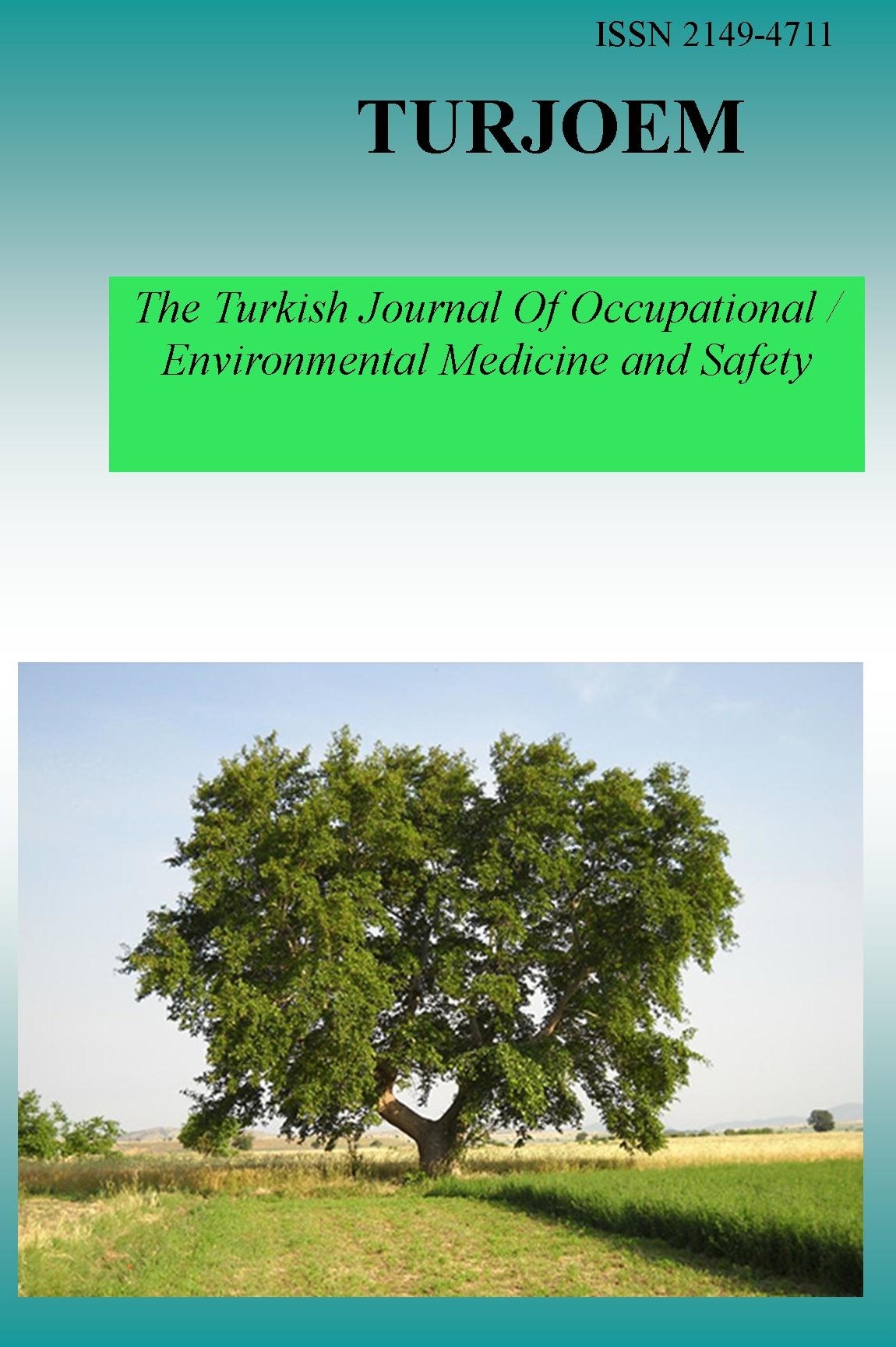An overview on dimethoate toxicity and human health
An overview on dimethoate toxicity and human health
___
- Ayşe Eken Department of Pharmaceutical Toxicology, Faculty of Pharmacy, Erciyes University, Kayseri, Turkey.
- ISSN: 2149-4711
- Başlangıç: 2015
- Yayıncı: Engin TUTKUN
Occupational diseases in the Netherlands: incidence, type, consequences and risk factors
Anita Venema, Romy Steenbeek, Liza Van Dam, Ernest De Vroome
Musculoskeletal Disorders (MSDs) in Turkish Parachute Trainer- 4 Cases
Nejdiye Mazıcan, Canan Demir, Meşide Gündüzöz, Vugar Ali Türksoy, Lütfiye Tutkun, Bilgehan Açıkgöz
Effects of Nanomaterials on Lungs
Burak KURT, Muhsin AKBABA, Hakan DEMİRHİNDİ, Volkan Recai ÖTEGEN
Evaluation of The Prevalence of Musculoskeletal Disorders In Nurses
Murat BÜYÜKŞEKERCİ, Ceylan BAL, Cemil NURAL, Ömer HINÇ YILMAZ
Yavuzalp Solak, Elçin Yoldaşcan, Muhsin Akbaba, Burak Kurt
Duygu Ayabakan Çot, Zuhal Akbaba, Muhsin Akbaba
Endocrine Disruptors and Reproductive System
Onur ACAR, Muhsin AKBABA, Burak KURT
Investigation of Knowledge Levels of Occupational Diseases in Vocational School Students
Tülin GÖNÜLTAŞ, Necdet AYTAÇ, Didem ATA YÜZÜGÜLLÜ, Çağlar CENGİZLER
